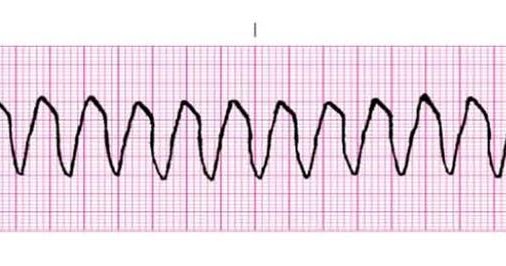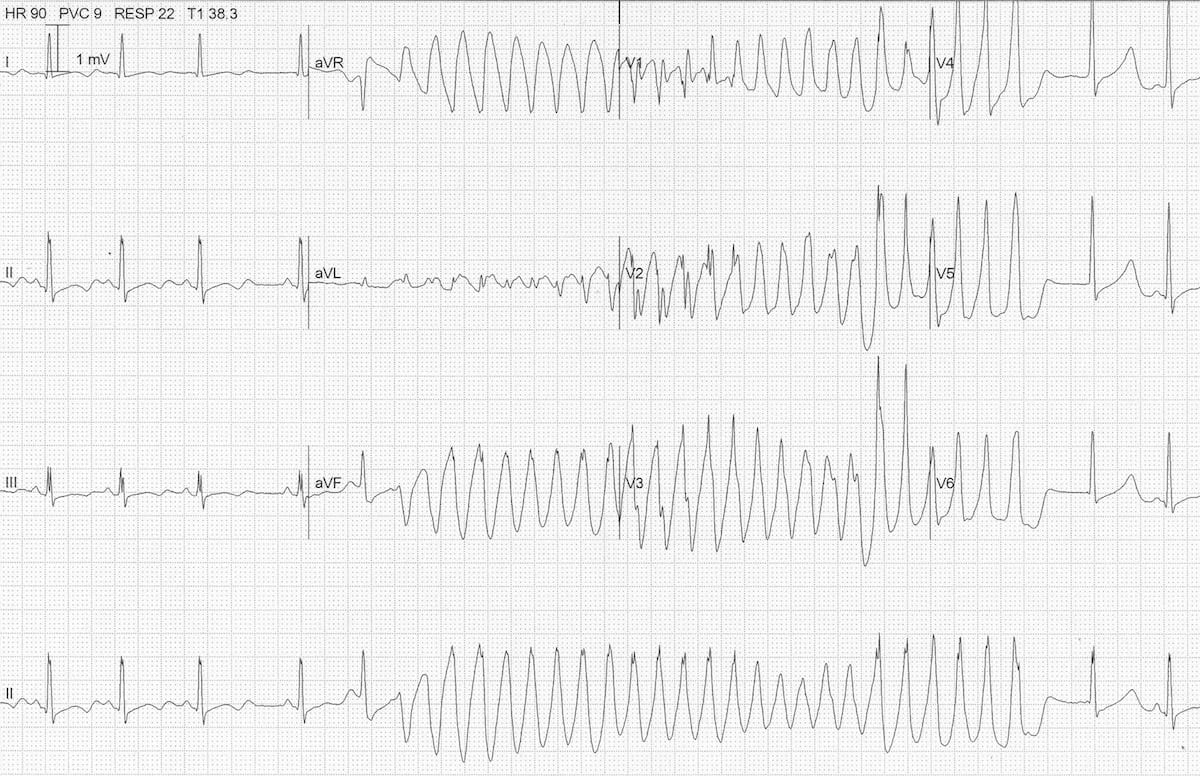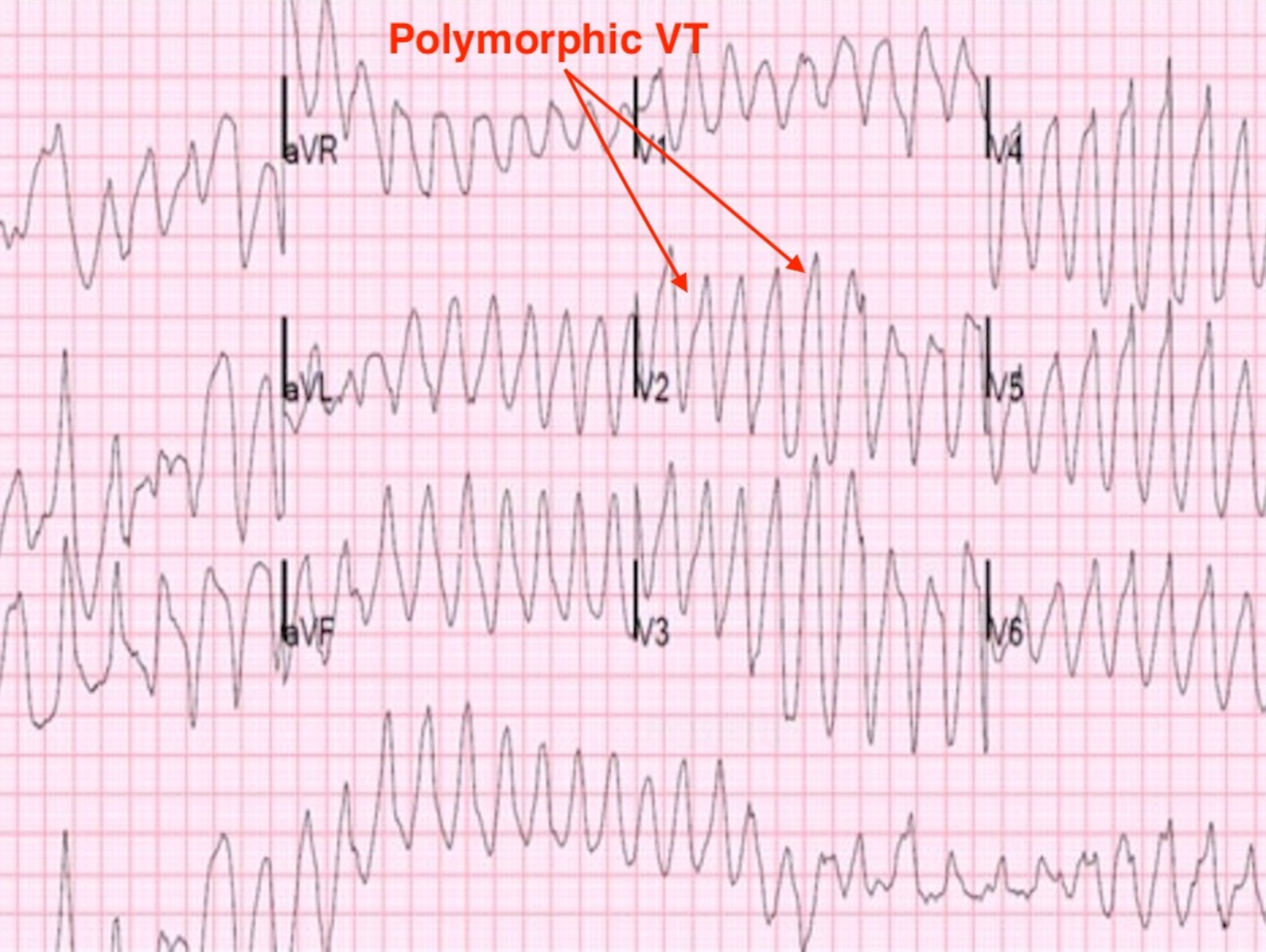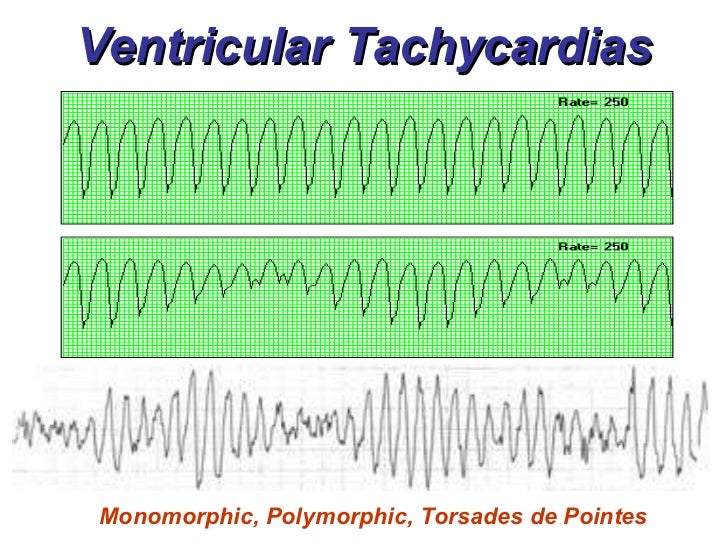V Fib Vs Polymorphic V Tach

With polymorphic v tach the ekg pattern is more irregular due to the origins of the signal conduction in the ventricles.
V fib vs polymorphic v tach. Ventricular tachycardia vs ventricular fibrillation arrhythmia means irregular cardiac rhythm and slow arrhythmias are called bradyarrhythmias and fast ones are called tachyarrhythmias there are various types of arrhythmias. Polymorphic vt is typically seen in association with acute myocardial infarction or ischemia mi ventricular hypertrophy and a number of genetic mutations that affect cardiac ion channels see table 249 1. Coronary catheterization angiogram cardiac computerized tomography ct magnetic resonance imaging mri summary of v tach and v fib. Ventricular fibrillation vfib electrocardiogram ecg blood tests.
Wide complex tachycardia is defined as a qrs greater than 12 secs and can be vtach monomorphic and polymorphic supraventricular tachycardia with aberrancy a pre excitation tachycardia or a. The difference is that ventricular tachycardia continues to make the heartbeat regularly but it goes so fast that the heart never gets a chance to fill with blood. Wide complex tachycardias are defined as a qrs of 0 12 second. Torsades de pointes tdp is a specific form of polymorphic ventricular tachycardia occurring in the context of qt prolongation.
Polymorphic ventricular tachycardia pvt is a form of ventricular tachycardia in which there are multiple ventricular foci with the resultant qrs complexes varying in amplitude axis and duration. There s not an opportunity to build up the pressure so the blood stops flowing. These rhythms include monomorphic ventricular tachycardia and polymorphic ventricular tachycardia both of which are wide complex tachycardias. Ventricular tachycardia v tach is treated similarly to v fib.
In v tach as it s commonly called the heart rate can be 170 beats per minute or even faster. The most notorious and probably the most common form of polymorphic vt is torsade de pointes. Sustained polymorphic vt usually degenerates into ventricular fibrillation vf. The points of difference between ventricular tachycardia and ventricular fibrillation.
Also just fyi course v fib is better and easier to convert. A dangerous condition related to ventricular tachycardia is ventricular fibrillation v fib. The commonest cause of pvt is myocardial ischaemia. This abnormal rhythm happens most often in people with heart disease or a prior heart attack.
Have been summarized below. They are atrial tachycardia monofocal or multifocal atrial fibrillation atrial flutter atrioventricular nodal re entry tachycardia atrioventricular re entry. In v fib your lower heart chambers contract in a very rapid and uncoordinated manner. In monomorphic v tach the ekg tracing is consistent and follows the same pattern.
When the qrs complex varies from beat to beat the rhythm is described as polymorphic vt and suggests a variable electrical activation sequence.

















